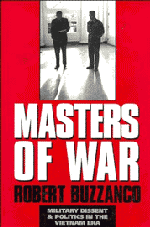Book contents
- Frontmatter
- Contents
- Acknowledgments
- List of Abbreviations
- 1 Introduction: Losing Battles and Winning Wars
- 2 Prologue to Tragedy: U.S. Military Opposition to Intervention in Vietnam, 1950–1954
- 3 Preparing for and Avoiding War: Military Affairs and Politics in Vietnam and the United States, 1955–1960
- 4 Pinning Down the President: JFK, the Military, and Political Maneuvering over Vietnam, January-October 1961
- 5 The Best and Worst of Times: The U.S. War against Vietnam, October 1961–November 1963
- 6 “Seeing Things Through in Vietnam”: LBJ, the Military, and the Growing U.S. Commitment to Vietnam, November 1963-December 1964
- 7 Hope for the Best, Expect the Worst: U.S. Ground Troops Enter the Vietnam War, January-July 1965
- 8 War on Three Fronts: U.S. Forces versus the Viet Cong, Westmoreland versus the Marines, and Military Leaders versus the White House, July 1965-December 1966
- 9 “The Platform of False Prophets Is Crowded”: Public Hope and Private Despair in Vietnam, 1967
- 10 The Myth of Tet: Military Failure and the Politics of War
- 11 Conclusion: Bringing It All Back Home
- Epilogue: “This Is a Real War”: Military Dissent and Politics after Vietnam
- Bibliography
- Index
1 - Introduction: Losing Battles and Winning Wars
Published online by Cambridge University Press: 05 August 2012
- Frontmatter
- Contents
- Acknowledgments
- List of Abbreviations
- 1 Introduction: Losing Battles and Winning Wars
- 2 Prologue to Tragedy: U.S. Military Opposition to Intervention in Vietnam, 1950–1954
- 3 Preparing for and Avoiding War: Military Affairs and Politics in Vietnam and the United States, 1955–1960
- 4 Pinning Down the President: JFK, the Military, and Political Maneuvering over Vietnam, January-October 1961
- 5 The Best and Worst of Times: The U.S. War against Vietnam, October 1961–November 1963
- 6 “Seeing Things Through in Vietnam”: LBJ, the Military, and the Growing U.S. Commitment to Vietnam, November 1963-December 1964
- 7 Hope for the Best, Expect the Worst: U.S. Ground Troops Enter the Vietnam War, January-July 1965
- 8 War on Three Fronts: U.S. Forces versus the Viet Cong, Westmoreland versus the Marines, and Military Leaders versus the White House, July 1965-December 1966
- 9 “The Platform of False Prophets Is Crowded”: Public Hope and Private Despair in Vietnam, 1967
- 10 The Myth of Tet: Military Failure and the Politics of War
- 11 Conclusion: Bringing It All Back Home
- Epilogue: “This Is a Real War”: Military Dissent and Politics after Vietnam
- Bibliography
- Index
Summary
You put your bombers in, you put your conscience out.
You take the human being and you twist it all about
So scrub my skin with women
Chain my tongue with whisky
Stuff my nose with garlic
Coat my eyes with butter
Fill my ears with silver
Stick my legs in plaster
Tell me lies about Vietnam.
Although two decades have passed since U.S. combat soldiers left Indochina, Americans are still telling lies about Vietnam. The ink was hardly dry on the 1973 peace accords when President Richard Nixon, with the help of Ross Perot, exploited the national furor that they had created over alleged prisoners of war remaining in Vietnam to justify their violations of the recently signed treaty and their refusal to make peace with the North Vietnamese. Shortly thereafter, the United States rejected normalizing relations with the Socialist Republic of Vietnam because, as America's “human rights” president, Jimmy Carter, explained, “the destruction was mutual.” By 1980, Ronald Reagan and the “New Right” were making huge electoral gains by pledging to “make America strong again” and, toward that end, set out to convince the country that the U.S. war against Indochina had been a “noble cause.”
Since then, the lies of Vietnam have created a great deal of political capital for politicians of all stripes, soldiers trying to vindicate themselves, and opportunist scholars.
- Type
- Chapter
- Information
- Masters of WarMilitary Dissent and Politics in the Vietnam Era, pp. 1 - 24Publisher: Cambridge University PressPrint publication year: 1996



